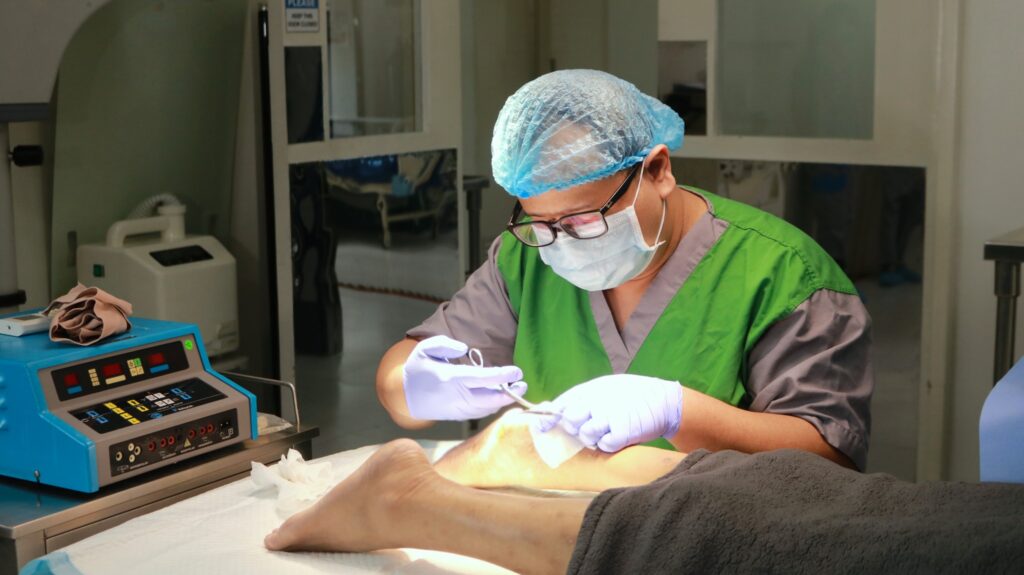Understanding Knee Replacement Surgery
Knee replacement surgery is one of the most effective medical procedures for people suffering from severe knee pain or limited mobility due to arthritis or injuries. It involves removing damaged cartilage and bone and replacing them with artificial components designed to restore movement and reduce discomfort. This surgery is often recommended when other treatments, such as physical therapy or medication, no longer provide relief. There are different types of procedures, including total knee replacement, which addresses the entire joint, and partial replacement, which focuses only on the damaged area. Minimally invasive techniques have also become more common, offering faster recovery times for patients. For many individuals, undergoing this procedure provides not only physical relief but also emotional well-being by improving their independence and quality of life. Understanding the basics of the surgery helps patients make informed decisions about seeking affordable knee replacement options.
The Cost Factor in Knee Replacement
One of the biggest concerns patients face when considering knee surgery is the cost. In the United States, the average cost of a knee replacement can range anywhere from $35,000 to $70,000 depending on several factors. This includes hospital fees, the surgeon’s expertise, the anesthesia team, the type of implant used, and the length of post-operative care. Costs can vary dramatically between urban and rural areas, as well as between private hospitals and community facilities. Patients without insurance often face higher financial challenges, while those with insurance may still encounter out-of-pocket expenses. Understanding the financial breakdown allows patients to plan realistically and explore options that suit their budget. Many people are now looking into affordable knee replacement alternatives without compromising their safety or health outcomes.
Exploring Affordable Knee Replacement Options
Affordable knee replacement does not always mean compromising on quality. Many hospitals and specialized orthopedic centers within the United States now provide cost-effective treatment packages that include surgery, hospital stay, and rehabilitation services. Patients also look into medical tourism as a viable option, with countries like India, Thailand, and the Philippines offering advanced orthopedic care at a fraction of U.S. costs. These destinations often have internationally accredited hospitals and experienced surgeons, making them competitive choices for those seeking affordability. However, patients should always weigh the potential benefits against travel risks, such as long flights post-surgery. Some U.S. clinics offer transparent and bundled pricing, which can significantly help patients budget their treatment. The key lies in comparing multiple providers to find the best balance between affordability and trusted healthcare services.
Factors That Influence Affordability
Several factors determine whether a knee replacement procedure will be considered affordable for a patient. Health insurance plays one of the biggest roles, as it can cover a significant portion of the expenses depending on the policy and provider network. Government assistance programs may also help seniors or disabled individuals reduce costs. Another factor is the type of implant chosen—while brand-name implants may come with a higher price tag, generic or equally safe alternatives can provide similar outcomes at lower prices. Hospitals and clinics may also offer payment plans or financing options, giving patients flexibility to manage costs over time. Additionally, post-surgery rehabilitation and home care choices can influence overall affordability, since recovery support is often needed for weeks or months. Patients who actively research and explore these options are better positioned to secure affordable knee replacement surgery that meets both their medical and financial needs.
How to Find Affordable Knee Replacement Providers
Finding the right provider requires careful research and consideration. Patients should start by looking into hospitals or clinics that are accredited and known for orthopedic care. Accreditation ensures that the facility follows strict quality and safety standards. Surgeon expertise also plays a vital role, as experienced doctors may prevent complications that could lead to higher costs later. Patients can compare reviews, testimonials, and pricing transparency to identify trustworthy providers. Some clinics advertise all-inclusive knee replacement packages that cover everything from pre-surgery consultation to rehabilitation, making the process more predictable and affordable. It is equally important to look out for red flags, such as hidden fees or lack of clear information about costs. With due diligence, patients can confidently select a provider that offers affordable knee replacement without sacrificing quality.
Affordable Alternatives Before Surgery
Not all patients require immediate knee replacement, and there are several affordable alternatives that can help manage symptoms before surgery is necessary. Physical therapy can strengthen muscles around the knee and improve flexibility, sometimes delaying the need for surgical intervention. Medications, such as pain relievers and anti-inflammatory drugs, are another cost-friendly way to manage discomfort. Lifestyle adjustments, including weight management and low-impact exercise, can significantly reduce strain on the knees. Some patients benefit from assistive devices like braces, walking aids, or orthotics that enhance mobility. Regenerative treatments, though still developing, may offer non-surgical relief in some cases. Exploring these alternatives provides patients with more control and the opportunity to postpone surgery until absolutely necessary, making affordable knee replacement a well-planned choice rather than an urgent expense.
Recovery and Long-Term Value of Affordable Knee Replacement
Recovery after knee replacement is a vital part of the overall treatment experience, and affordability does not have to compromise the quality of care received during this stage. Rehabilitation typically involves physical therapy, lifestyle adjustments, and follow-up appointments with the surgeon. Patients who undergo affordable knee replacement often experience outcomes similar to those who pay higher prices, provided the procedure was performed at a reputable facility. The true value of the surgery lies in the long-term benefits, including reduced pain, restored mobility, and the ability to return to daily activities with greater independence. The implants used in modern procedures can last for decades, making them a cost-effective investment in long-term health. Affordability should be viewed not only in terms of upfront expenses but also in terms of the years of improved living that follow. Patients who regain mobility often find the surgery life-changing, proving that affordable knee replacement can deliver both physical and financial value.
Frequently Asked Questions (FAQ)
What is the average cost of affordable knee replacement?
The average cost of affordable knee replacement in the United States can range from $20,000 to $35,000 in certain clinics, especially those offering package deals or working with insurance. Overseas options may lower costs to $10,000 or less, depending on the country.
Is affordable knee replacement safe compared to expensive options?
Yes, affordable options can be just as safe as more expensive ones, especially when patients choose accredited hospitals and experienced surgeons. Safety is more about quality of care and expertise than price.
Does insurance cover knee replacement surgery?
Most health insurance policies cover knee replacement if it is deemed medically necessary. However, patients may still need to pay deductibles, co-payments, or costs for specific implant types.
How long does recovery usually take?
Recovery times vary, but most patients can expect to return to light activities within 6 to 8 weeks. Full recovery and optimal mobility may take up to 6 months or more.
Can knee replacement implants last a lifetime?
Modern implants are highly durable, with many lasting 15 to 20 years or even longer. Patients who maintain a healthy lifestyle may extend the longevity of their implants.





